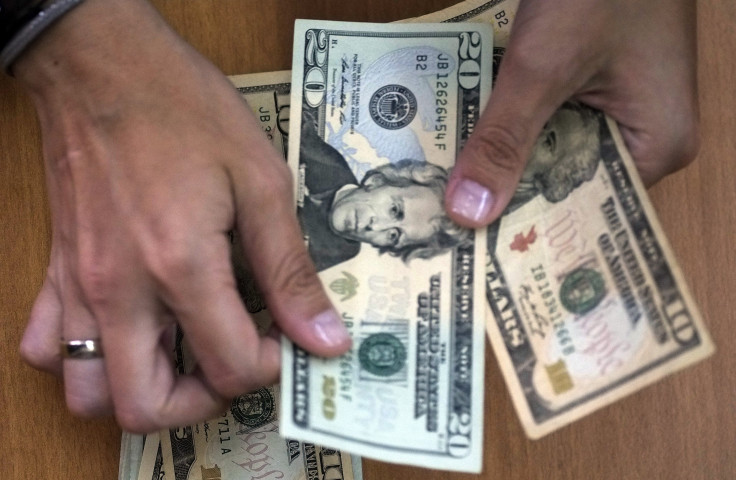Fed Rate Hike: What Do Higher Interest Rates Mean For Your Wallet? [VIDEO]

The U.S. Wednesday took another small step in the direction of economic recovery. The Federal Reserve decided to raise short-term interest rates for the first time in nearly 10 years -- a move that suggests the economy continues to improve. But after months, even years, of forecasting a rate increase, today’s announcement isn’t exactly a surprise.
An increase in the federal funds rate -- the interest rate banks charge each other for overnight loans -- has been widely anticipated. And a quarter percentage point move to between 0.25 and 0.5 percent is a far cry from the rate that’s expected after a normal economic recovery, which averages 3.5 to 4 percent. So the Fed has a long way to go.

“Rate hikes have traditionally sought to cool an overheating economy, but in this particular case, they’re not trying to combat inflation,” said Jane Leung, iShares Asset Allocation Strategist. “Rising rates reflect a healthier, growing economy, and that’s a good thing.”
Ann Owen, a professor of economics at Hamilton College, said it’s important to understand the rate change will be incremental. “It’s certainly not a reason to panic or dramatically change your financial plans,” she said.
Still, Wednesday’s news might leave you wondering what comes next and, more importantly, what it means for your wallet. Here are five actions to take now that the Fed has started raising rates.
Invest for Retirement
After the financial crisis, many Americans opted to stockpile cash rather than invest in their retirement portfolios, a decision that's likely to do more harm than good. According to the BlackRock CoRI Index 2025, a 65-year-old with the average retirement nest egg of $136,200 can only expect about $9,129 of annual retirement income. That would leave many people with a significant retirement gap.
Despite the stress-inducing swings, moving cash into the stock market is necessary if you want to live comfortably in retirement. The U.S. economy will always vacillate between periods of growth and decline, but ultimately it trends upward over time.
Now that rates are increasing, Leung said, technology companies and banks stand to benefit, but he emphasizes the importance of a diversified portfolio. Most investors in the U.S. probably have too few international investments, she said. “One of the best ways to achieve international diversification is with ETFs, because it gives you a way to be invested in a low-cost and transparent way,” she added.
Pay Off Debt
Anytime the Fed raises rates, banks follow suit by increasing interest rates on variable-rate debt, commonly found on loans for mortgages, automobiles and credit cards. “Unfortunately, you're going to feel it on what you owe,” said Brian Rehling, co-head of Global Fixed Income Strategy at the Wells Fargo Investment Institute. “If you are carrying a balance, you will see those rates move higher, and so those payments will increase,” he added.
Aggressively paying down debt sooner rather than later will save you money in the long run. Balance transfer cards are still an option for managing credit card debt, but the terms could change moving forward. “What we may see is one-time balance transfer fees going up and/or shorter grace periods,” said Ricardo Serrano-Padial, assistant professor of economics at Drexel University.
Consider Refinancing
Interest rates for variable-rate loans have been lower than fixed-rate loans in recent years, making them an appealing option for borrowers. But now that the Fed is raising rates, variable-rate loans will increase as well, while fixed-rate loans will remain constant. Fluctuating interest rates can make it difficult to budget, since monthly payments will increase anytime interest rates go up.
Refinancing to a fixed-rate now could pay off if interest rates continue to climb. “If you have the opportunity to lock in what are still quite low rates and bring your costs down, that’s worth looking into,” said Rehling. Pay close attention to adjustable-rate mortgages and student loans with variable rates.
Don’t Rush a Big Purchase
The Federal Reserve only has the power to change the federal funds rate, which affects short-term interest rates. Fixed-rate mortgages are more closely correlated to long-term interest rates, according to Rehling. "Think 10-year treasury yield," he said.
“Short-term rates will rise, but we don’t really expect long-term rates to see as much of an impact. Those rate movements -- short-term and long-term -- don’t always move together,” he added.
The takeaway? Those in the market for a new home should not feel pressure to act quickly because of rising rates. Low fixed-rate mortgages will be available for the foreseeable future, even if the Fed continues to implement incremental rate increases. Buying a home is the biggest financial decision most Americans make, and it should be made carefully, weighing factors such as job security and transiency.
Look for a New Job
The sluggish recovery still has many Americans struggling to pay their bills each month. Over half of millennials under age 30 want to stop living paycheck-to-paycheck, ranking it as their top financial goal in a recent survey from Capital One.
Finding a new job might be the best way to increase monthly take-home pay, making it easier to pay off debt and invest for retirement. For those who are employed but looking to switch jobs, the search usually takes about 9 to 10 weeks, according to recent data from the Bureau of Labor Statistics. The sooner you start sending resumes, the sooner you will be negotiating a new job offer.
“The labor market is improving. There are definitely some weaknesses in the labor market, but it’s not universal,” said Owen. “A lot of our students who are seniors right now already have jobs,” she added. With six months to go until the class of 2016 graduates, that's an encouraging sign for the year ahead.
© Copyright IBTimes 2025. All rights reserved.





















